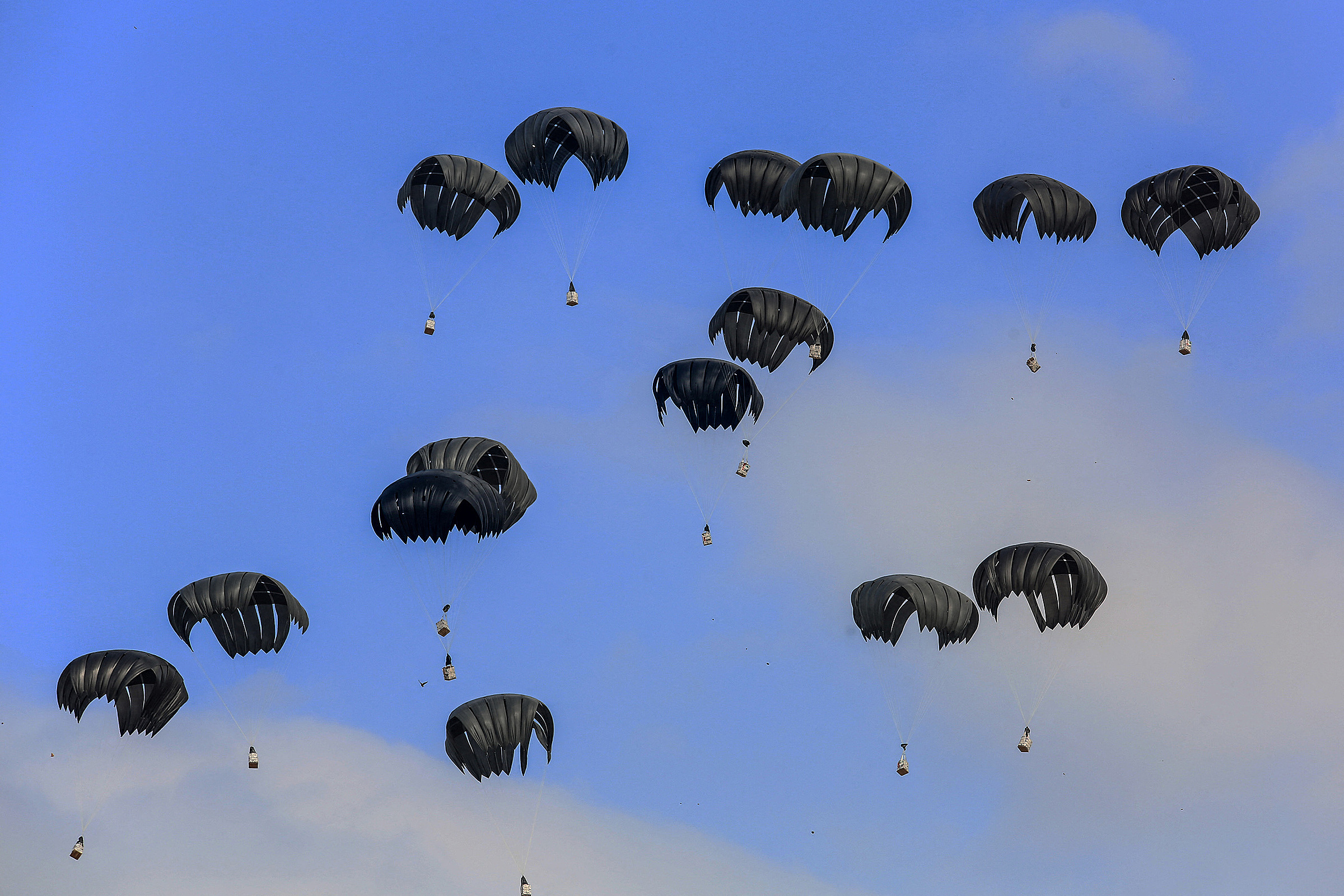On 26/7, the Israel Defense Forces (IDF) announced it would coordinate with international organizations to airdrop seven packages containing flour, sugar, and canned food. Palestinian sources confirmed aid had begun landing in northern Gaza.
The United Arab Emirates (UAE) also declared it would restart aid deliveries. The UK said it would work with partners, including Jordan, to provide support.
The IDF also announced it would establish "humanitarian corridors" to ensure the safe passage of UN aid convoys.
The Israeli Ministry of Foreign Affairs announced that "humanitarian pauses" would be implemented in some populated areas.
 |
Aid is dropped from a plane in Khan Younis, Gaza, on 17/10/2024. Photo: AFP |
Aid is dropped from a plane in Khan Younis, Gaza, on 17/10/2024. Photo: AFP
This move comes amid mounting international pressure and warnings of widespread famine in the Gaza Strip.
The IDF has restricted the flow of aid into Gaza for months. According to Gaza health officials, dozens of Palestinians have died from malnutrition in recent weeks. During two years of conflict, 127 people have died from this cause, including 85 children.
On 23/7, over 100 aid agencies warned of widespread famine throughout the territory. The IDF also said it had connected power lines to a desalination plant, expected to provide the daily water needs for about 900,000 people.
The IDF launched its campaign against the Gaza Strip in 10/2023 in response to a Hamas attack that killed approximately 1,200 Israelis. The conflict has so far killed over 59,000 people in Gaza and injured more than 142,000, mostly civilians.
Recent indirect ceasefire talks in Doha failed to produce an agreement.
Duc Trung (According to Reuters, Times of Israel)












